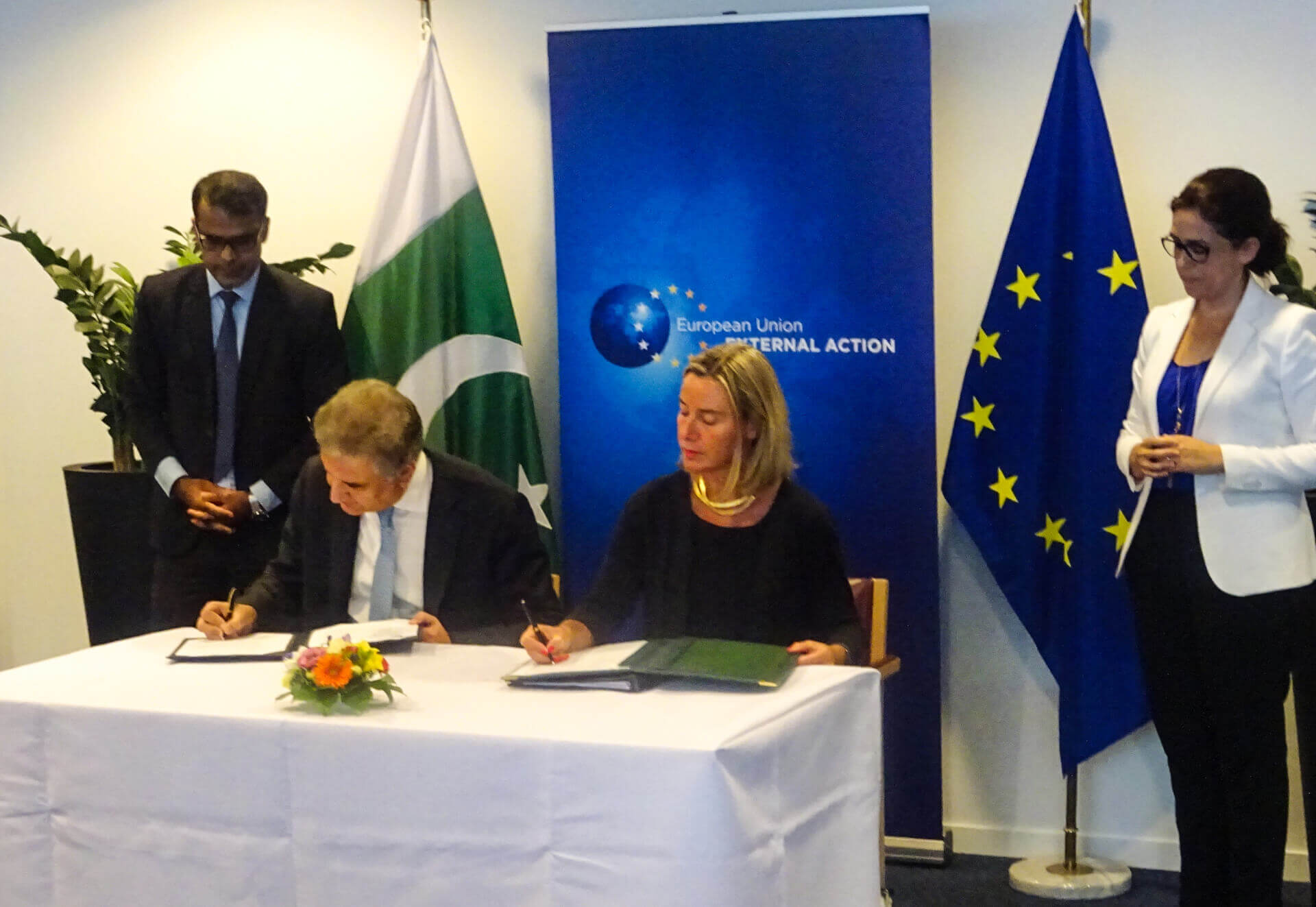On Wednesday, Pakistan and the European Union (EU) held a virtual conference for the 6th round of the EU–Pakistan Political Dialogue. The meeting was co-chaired by the Deputy Secretary-General of the European External Action Service, Enrique More, and Pakistan’s Foreign Secretary, Ambassador Sohail Mahmood. Following the meeting, Mahmood said that the two sides held “fruitful exchanges on political and economic engagement” and highlighted Islamabad’s commitment to “further strengthen [its] partnership with EU.”
During the meet, the two sides discussed their dedication to the continuation of their commitments under the EU-Pakistan Strategic Engagement Plan (SEP), which was signed between Pakistani Foreign Minister Shah Mahmood Qureshi and EU High Representative Federica Mogherini in June 2019. Shortly after the document was formalised, Qureshi had addressed the EU’s Political and Security Committee and applauded the agreement for deepening the EU’s partnership with Pakistan through “an all-encompassing framework of cooperation.” The SEP calls for collaboration on several aspects including “climate change, energy, and connectivity.” It also establishes a dialogue for collaboration on peace and security – the Strategic Dialogue between EU High Representative of Foreign Affairs and Policy, Josep Borrell, and Qureshi.
The EU, in its statement following the meet, applauded Pakistan’s recent efforts on several fronts, beginning with formally appreciating the country’s acceptance of Afghan refugees. Further, Pakistan’s decision to share information on the refugees with the EU was encouraged. The two sides also exchanged opinions on the developments of the ongoing Afghan peace process, reiterating their commitment to promoting a nationwide ceasefire to bring an end to violence in the region. They also discussed their diplomatic relations with China, India, and Iran.
The EU celebrated Pakistan’s efforts on human rights issues as well. This was in light of the two sides’ discussion on Islamabad’s inclusion in the EU’s Generalised Scheme of Preferences Plus (GSP+), through which the EU incentivises “Sustainable Development and Good Governance” in exchange for the removal of tariffs on “66% of EU tariff lines.”
The EU also commended Pakistan’s work towards implementing the plan of the Financial Action Task Force (FATF) against the funding of terrorist activities and money laundering. Pakistan has been under pressure from the FATF for failing to adhere to 13 out of 27 criteria of its Action Plan. In July, the Director-General of the Financial Monitoring Unit, Lubna Farooq, expressed her disdain over Pakistan’s “non-serious attitude” towards its commitment to the FATF. However, in preparation for the FATF’s meeting in October, the Pakistani government has been working towards meeting the criteria by bringing in crucial bills to target terror financing and other related activities.
EU, Pakistan Hold a Virtual Conference for the 6th Round of Political Dialogue
The meeting was co-chaired by the Deputy Secretary-General of the European External Action Service, Enrique More, and Pakistan’s Foreign Secretary, Sohail Mahmood.
October 8, 2020

EU High Representative Federica Mogherini and Pakistani Foreign Minister Shah Mahmood Qureshi signing the Strategic Engagement Plan in June 2019.
